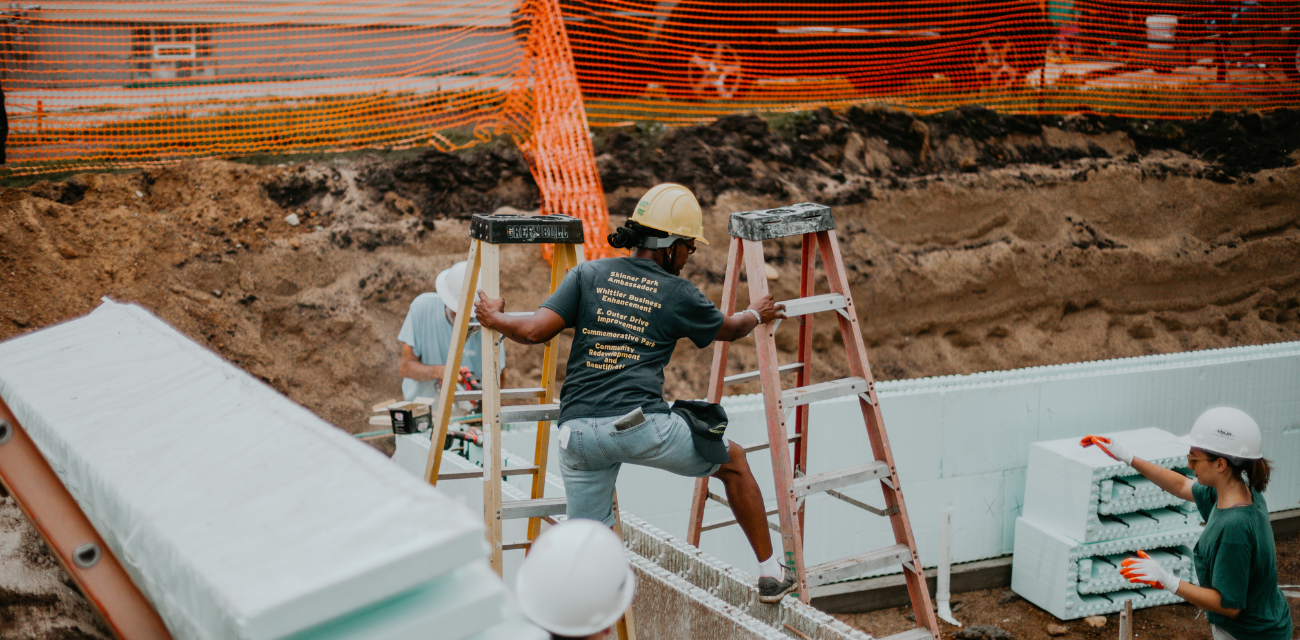Michigan homes will become greener, cheaper and comfier

Building codes have been a bedrock for workplace and household safety since the United States was just the Thirteen Colonies. They are the rules for designing, constructing, maintaining and majorly renovating buildings, from bungalows to business headquarters.
These mundane requirements have always quietly hummed along in the backgrounds of our lives, protecting us from fires, fumes, the elements and dangerous construction that can come from poorly built buildings.
Yet, these codes have taken center stage in recent years, for reasons both good and bad. And, in Michigan, goodness has just prevailed.
‘Boring’ but important
The Michigan Department of Licensing and Regulatory Affairs made good on Earth Day this April 22 by adopting measures to make housing more sustainable—and more affordable for those living in them.
Updated energy codes for the construction and major renovation of residential buildings were filed by the State of Michigan and are set to go into effect in August. Similar codes for commercial buildings—like retail stores and offices—were adopted in December 2024 and just took effect.
“As boring as they may sound, Michigan’s new building codes are a huge win for Michigan’s homeowners, workers and the environment,” said Carlee Knott, energy and climate policy manager at the Michigan Environmental Council, who has worked for years to see better building codes through.
The new energy building codes will make insulation and structural elements more energy efficient than before. The same goes for installations and appliances. Together, these improvements mean less energy from fossil fuels will be needed to create a comfortable, useful environment to live or work in.
In the words of Knott: “The codes will keep energy costs down, they’ll keep indoor and outdoor air cleaner, and they’ll make homes more resilient and comfortable no matter the weather.”
Take windows as an example. Michigan’s new codes will make it so developers and renovators will have to install windows that can solidly keep out the wind, absorb the sun’s heat or winter’s chill, and keep precipitation out. This means less heat, cold and humidity will enter the home, so the family living in it can use less energy to keep a comfortable temperature. Less energy means a lower utility bill, and less energy means less fossil fuels being burned to power furnaces, fans and air conditioners.
“Updating our energy codes is one of the greatest tools the State of Michigan holds to make necessary advancements in energy efficiency,” said Grace Michienzi, senior director of policy at the Michigan Energy Innovation Business Council. “[They] will save homeowners money while supporting energy efficiency jobs, an industry that supports nearly 80,000 jobs in Michigan.”
A recent federal study expounds upon these facts. Over three decades, Michigan’s new energy building codes will reduce carbon dioxide emissions by 11.5 million metric tons—the equivalent of 2.5 million vehicles. It would also save a typical household $396 per year on utility bills.
These figures give credence to energy efficiency as a critical tool in our climate change toolkit. It’s also a quiet way to lower rising housing costs.
Future construction
Unfortunately, our quietly effective building codes have garnered loud reactions—and not the good kind.
Anna Phillips of the Washington Post reported that the National Association of Home Builders became irate at the International Code Council, the long-respected group whose model building codes many states use. The Council typically recommends builders and renovators reduce the typical energy buildings use by 1%; their 2021 codes recommended 11%.
The Home Builders argued the changes will lead to higher construction and renovation costs. (It assumes businesses will pass down these costs to people.)
An independent study found that the price tags the Home Builders are predicting is exaggerated. The real costs—$3,500 to $5,000—can be recouped quickly—in fact, homeowners will be net positive in utility bill savings long before they pay off a mortgage.
Still, these scare tactics have worked. The construction lobby has successfully stymied routine building codes updates in some states.
That was the case in Michigan. Our building codes have be updated every three years, but the state has been running on codes from 2015. The Home Builders Association of Michigan diluted those codes and then successfully advocated to skip an update in 2018. When efforts to water down a new set of codes failed in 2021, the Association looked to delay instead.
That tactic worked until now. Over 150 environmental and housing experts and business owners came together through the leadership of the Environmental Council’s Knott. So did 325 individuals across the state. Together, these folks interacted with Michigan lawmakers and the state for years to assure them of new building codes’ net benefits to people, planet and personal finance.
“Modernizing Michigan’s building codes is a win for families across the state,” said Tony Sirna, deputy policy director of Evergreen Action. “It means lower monthly energy bills, cleaner air to breathe and stronger protections against extreme weather. These updated standards are a long-overdue improvement that will raise the bar for how Michigan builds homes.”
The updates also come despite attacks from President Donald Trump and his administration on the environment. They are key to a cleaner, more affordable future, which Michigan’s climate plan is seeking to achieve.
“It’s only fitting that these codes get adopted on Earth Day as our nation and state grapple with issues such as climate change, threats to air and water quality, and loss in local biodiversity,” said Dr. Missy Stults, sustainability and innovations director for the City of Ann Arbor.
Unfortunately, Nick Manes of Crain’s Detroit Business reported the Home Builders Association of Michigan may file a lawsuit against these codes.
Still, Knott said Michigan’s sustainable housing coalitions are prepared to make sure the codes are kept. They will ensure the new codes are enforced, that invalid threats are dismissed and that future building codes will be even better for both people and the planet.
Discover
Power environmental change today.
Your gift to the Michigan Environmental Council is a powerful investment in the air we breathe, our water and the places we love.
Sign up for environmental news & stories.
"*" indicates required fields





